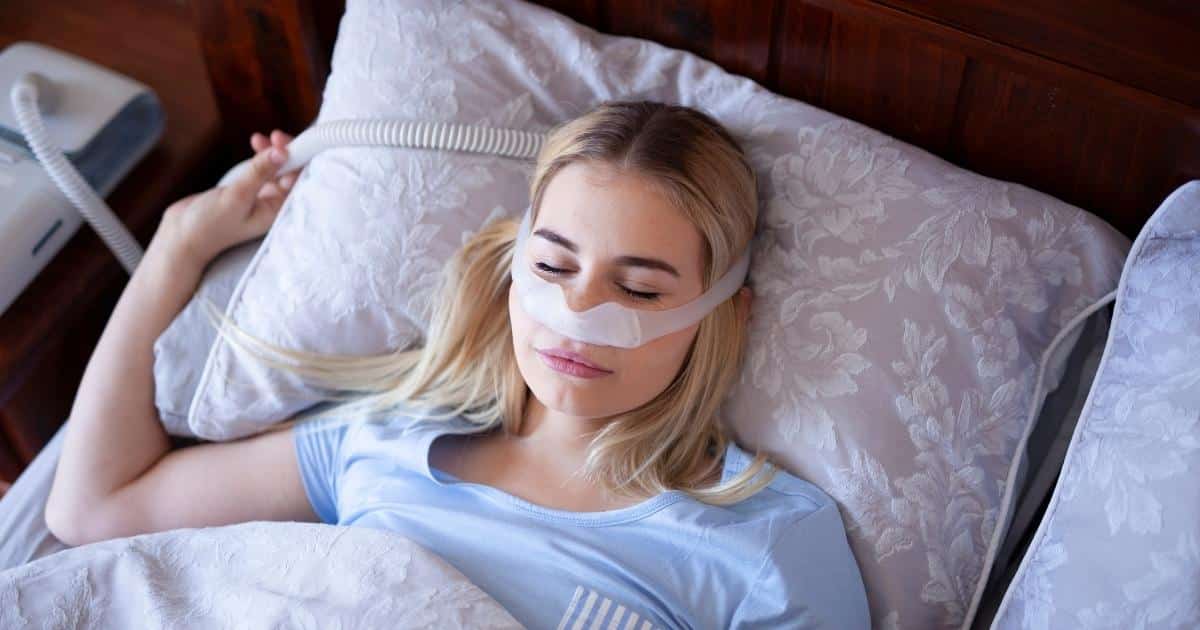Published on December 27, 2024

Sleep apnea is a serious condition that affects breathing during sleep. It can lead to fatigue, poor concentration, and even health problems like high blood pressure. While medical treatments like CPAP therapy help, lifestyle changes can also make a big difference. Simple adjustments in daily habits can improve sleep quality and reduce symptoms.
Maintain a Healthy Weight
Extra weight, especially around the neck, can block airways and worsen sleep apnea. Losing even a small amount of weight may help reduce symptoms.
- Choose a balanced diet – Eat more fruits, vegetables, lean proteins, and whole grains. Avoid processed foods and excess sugar.
- Stay active – Aim for at least 30 minutes of exercise most days of the week. Walking, jogging, and strength training can be helpful.
- Avoid crash diets – Sudden weight loss can lead to muscle loss, which may affect airway function. A steady, healthy approach works best.
Improve Sleeping Position
The way you sleep affects your breathing. Sleeping on the back often worsens sleep apnea South Side because gravity pushes the tongue and soft tissues backward, blocking airflow.
- Try side sleeping – It keeps airways open and reduces snoring.
- Use a body pillow – This helps stay in a side position throughout the night.
- Elevate the head – A slightly raised head position can prevent airway blockage.
Create a Better Sleep Environment
A good sleep routine and environment support restful sleep. Small adjustments can improve sleep quality.
- Stick to a schedule – Go to bed and wake up at the same time daily, even on weekends.
- Limit screen time – Blue light from devices can disrupt melatonin production. Try reading a book instead.
- Keep the room dark and quiet – Use blackout curtains and white noise machines if needed.
- Choose a comfortable mattress and pillow – Proper support helps maintain airway openness.
Reduce Alcohol and Smoking
Alcohol and smoking can make sleep apnea worse. Avoiding them can lead to noticeable improvements.
- Limit alcohol, especially before bed – Alcohol relaxes throat muscles, making airway blockages more likely.
- Quit smoking – Smoking inflames the airways, making breathing harder during sleep.
- Seek support – Quitting smoking is tough, but help from professionals or support groups can make a difference.
Stay Active and Exercise Regularly
Exercise helps with weight management and strengthens airway muscles. It also improves overall sleep quality.
- Try aerobic exercises – Activities like running, swimming, and cycling boost heart health and breathing.
- Do breathing exercises – Techniques like diaphragmatic breathing strengthen respiratory muscles.
- Practice yoga – Certain poses and breathing techniques may help open airways and improve lung function.
Manage Stress and Anxiety
Stress and anxiety can worsen sleep apnea by making it harder to relax at night. Managing stress levels can help improve breathing and sleep quality.
- Practice relaxation techniques – Meditation, deep breathing, and progressive muscle relaxation can promote better sleep.
- Try journaling – Writing down thoughts before bed can help clear the mind.
- Limit caffeine – Avoid coffee or energy drinks late in the day, as they can disrupt sleep.
Avoid Heavy Meals Before Bed
Eating too much before bedtime can make breathing harder and worsen sleep apnea symptoms.
- Eat earlier in the evening – Give the body enough time to digest before sleeping.
- Choose lighter meals at night – Heavy, greasy foods can cause bloating and acid reflux.
- Stay hydrated – Drink enough water during the day, but avoid too much fluid right before bed.
Consider a Humidifier
Dry air can irritate airways and make sleep apnea symptoms worse. A humidifier adds moisture to the air, making it easier to breathe.
- Use a cool mist humidifier – This keeps the airways from drying out.
- Add essential oils – Eucalyptus or peppermint oil may help with nasal congestion.
- Clean it regularly – A dirty humidifier can spread bacteria and worsen breathing problems.
Strengthen Airway Muscles
Certain exercises can strengthen the muscles in the throat, making them less likely to collapse during sleep.
- Try tongue exercises – Pressing the tongue against the roof of the mouth and sliding it backward can improve muscle tone.
- Sing regularly – Singing works throat muscles and may help reduce snoring.
- Practice blowing up balloons – This strengthens breathing muscles.
Stay Consistent with Healthy Habits
Lifestyle changes take time to show results, but consistency is important. Combining multiple strategies often leads to the best improvement.
- Track progress – Keeping a sleep journal can help identify what works best.
- Be patient – Small improvements add up over time.
- Seek medical guidance – If symptoms persist, talk to a healthcare provider for further options.
Lifestyle changes can play a big role in managing sleep apnea. Simple steps like maintaining a healthy weight, improving sleep habits, and avoiding alcohol or smoking can make a noticeable difference. Regular exercise and stress management also help improve breathing and overall well-being. While medical treatments may still be necessary, these daily habits can support better sleep and long-term health.
